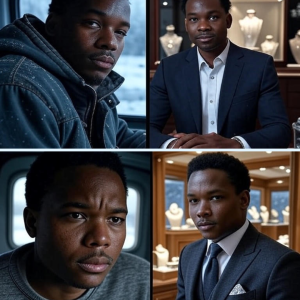In 2019, in the seemingly sunny and perfect city of Phoenix, Arizona, seventeen-year-old Jordan Hayes faced a battle that went far beyond her mysterious illness.
Her struggle was not only against the relentless pain, dizziness, and bruises that marked the onset of leukemia but also against the disbelief of her own family. The story of Jordan Hayes is a profound reflection on parental denial, societal image, and the resilience of a young girl fighting for her life and truth.
From the beginning, Jordan’s pleas for help were met with skepticism and ridicule. Her mother dismissed her agony as mere drama, while her father viewed her fainting spells as manipulative attention-seeking behavior. Even her younger brother Ryan, taught to believe that Jordan exaggerated for sympathy, failed to see the seriousness of her deteriorating condition.
The Hayes family, outwardly perfect—a successful father, a socially prominent mother, and a picture-perfect daughter—could not accept that something was wrong. Their need to preserve their community image overshadowed Jordan’s desperate cries for medical help.
At school, Jordan’s suffering intensified. She could barely eat, struggled to maintain her grades, and collapsed in pain during lunch. Only her loyal friend Sienna recognized the severity of her condition. When Jordan fainted, it was the school nurse, Mrs. Hansen, who finally intervened. Unlike her parents, Mrs. Hansen noticed the alarming signs of anemia and bruising and demanded immediate hospital care, threatening to call an ambulance if necessary.
The hospital visit shattered the Hayes family’s long-standing denial. Blood tests revealed severe abnormalities—white blood cell counts pointing to advanced leukemia. For nearly eight months, Jordan’s illness had gone untreated, a delay that significantly worsened her prognosis. The doctor’s stern words exposed the parental negligence, highlighting the irreversible damage caused by their disbelief. This moment marked a turning point: the image of a perfect family crumbled under the weight of guilt and fear.
Admitted to oncology, Jordan finally received the compassion and care she had been denied for months. Nurse Maria offered warmth and reassurance, while her best friend Sienna sent messages of unwavering support. Even Ryan, previously convinced of Jordan’s theatrics, broke down in tears, apologizing for not believing his sister. Their heartfelt embrace revealed the innocence of a child misled by adult misconceptions and the deep bond of sibling love.
Meanwhile, her parents sat silently in the hospital room, overwhelmed by the consequences of their neglect. The oncologist, Dr. Matthews, made it clear that had Jordan been treated earlier, the situation could have been drastically different. This statement served as both a medical truth and a moral reckoning for the parents who had silenced their daughter’s suffering.
Jordan’s story is ultimately one of resilience and survival. Despite months of pain and emotional abandonment, she clung to life, to hope, and to the few people who believed in her. It is a powerful reminder of the importance of listening to those in distress, regardless of appearances or preconceived notions. It underscores how societal pressures and a fixation on maintaining perfection can blind families to real dangers within their own homes.
As Jordan began aggressive chemotherapy, the road ahead remained uncertain. Yet, for the first time in almost a year, she was no longer alone in her fight. The truth had finally pierced through denial, opening the door to healing—not only of her body but of fractured family bonds.





